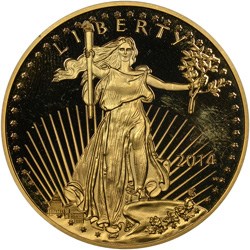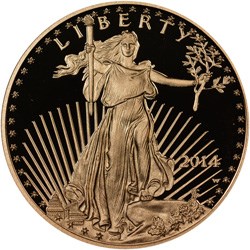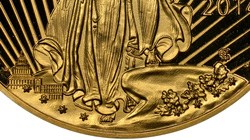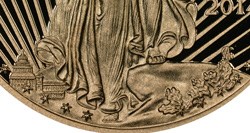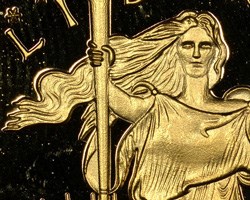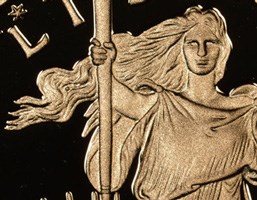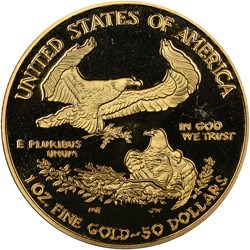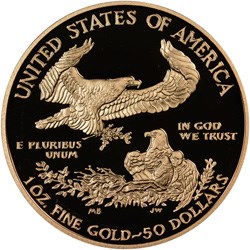Counterfeit Detection: 2014-W Proof Gold Eagle
Posted on 5/10/2016
NGC recently received a coin that was purportedly a 2014-W Proof Gold Eagle. Many collectors might assume that modern coins are not counterfeited and they, therefore, take little time to examine such a coin. This can be an expensive assumption.
A cursory examination of this 2014-W Proof Gold Eagle revealed numerous differences between it and an authentic example. The portrait of Liberty looks like a caricature of the original and the coin is thicker than a genuine piece. Although it is thicker than a legitimate specimen, it is lighter too.
At left is an image of the counterfeit received by NGC and at right is a genuine Proof Gold Eagle for comparison.
As you can see, the genuine coin on the right is nearly flawless with deeply mirrored, black fields and well-frosted devices. The counterfeit’s fields are not quite as jet-black, and the frost on the devices is a lot weaker than on a genuine example. Once you start to look closely at the fake, many problems become obvious.
A careful examination of the finer details reveals numerous differences. Take a look at the Capitol building on both coins. On the fake, the windows are essentially a series of lines with no artistry to them at all. Conversely, on the genuine piece it is clear that each window was meticulously sculpted by hand by a master engraver. The bottoms of the windows also flow into the fields much more smoothly on the genuine coin, while they simply abruptly stop on the fake.
These odd details are due to the way in which the fake was produced. This counterfeit was likely struck from false dies created completely from scratch using a genuine coin as a model. There are simply too many major differences for this coin to be any sort of transfer fake.
In addition to the Capitol there are vast differences in the foot details. The toes are much more pronounced on the fake than they should be.
Many major differences can be seen in the upper body of Liberty. Most noticeably, there was a major die polishing error when making the counterfeit, putting a big hole right through Liberty’s sleeve. Miss Liberty looks more like the zombie with her face on the counterfeit. As was the case with her toes, the fingers are also way too sharp on the torch. Lastly, the letters all around the coin are much thinner than they should be, which you can clearly see on the “L” OF “LIBERTY.”
Below is the reverse of the counterfeit and genuine coin. It isn’t necessary to go into as much detail here but there reverse is plagued by many of the same issues as the obverse, including weak details and narrow lettering.
One issue that should be pointed out on the reverse, however, is that somehow the birds in the nest have been magically transformed by the counterfeiter into pigeons instead of eagles.
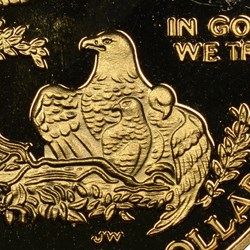 |
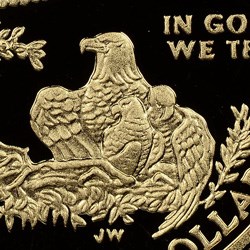 |
| Close up of 2014-W Proof Gold Eagle Left: Counterfeit, Right: Genuine. Note the shape of the beak. Click images to enlarge. |
|
The most important thing to remember is to always look closely at your coins, even if they appear genuine at first glance or are newly issued. It is also vital that you know what a genuine coin should look like. If you are buying gold coins, it would be helpful to bring an accurate scale with you as well, as it could save you from buying a gold pigeon instead of a gold eagle.
Interested in reading more articles on Counterfeit Detection? Click here.
Stay Informed
Want news like this delivered to your inbox once a month? Subscribe to the free NGC eNewsletter today!
